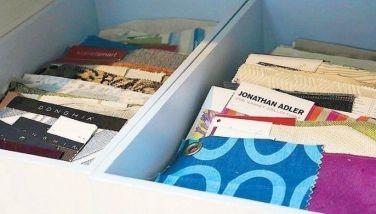SMC to trade P300-M payables to suppliers
July 1, 2006 | 12:00am
The Securities and Exchange Commission has approved the registration of San Miguel Corp.’s P300-million worth of payables to suppliers, paving the way for their trading on the alternative trading system (ATS) to be operated by the Development Bank of the Philippines (DBP).
These payables will be traded in the market for SMEs/Suppliers Receivables Purchases (M4SME-RP), the first ATS approved by the SEC.
An ATS is defined by the SEC as any organization, association, person or group of persons or system that maintains or provides an electronic market place or facilities for bringing together purchasers and sellers of securities.
The M4SME-RP was initiated by the DBP to assist SMEs (small and medium-sized enterprises) hurdle the impediments of bank financing and to allow these SMEs the opportunity to sell their receivables outright at the best price possible.
The M4SME-RP is an electronic marketplace designed for the trading of SMEs/suppliers Receivables invoices from large corporate buyers called the "Big Brother".
Although San Miguel is the issuer of the payables, it will not be the selling entity. Rather, it will be the suppliers through a trustee who will be selling the payables when first traded in the M4SME-RP. No part of the sales proceeds will go to San Miguel, its participation in the M4SME-RP is solely to assist in the financing requirements of its suppliers, and to support the government’s efforts to spur growth in the SME sector.
DBP’s main objective is to help SMEs secure loans and provide them with the opportunity to sell their receivables outright at a much lower financing cost.
Financing of SMEs’ trade receivables usually come in the form of short-term, secured, high-interest bearing bank loans.
DBP is the first institution to have expressed interest in the ATS. Its clientele include 200 SMEs which have less than P200 million in total assets.
While they account for 90 percent of the domestic economy, SMEs continue to find difficulties securing formal financing due to lack of credit history and banking relationships, high cost of authenticating credit information and lack of familiarity with financial products.
DBP expects the ATS to induce active and direct participation of non-traditional institutional and retail investors in a wider, organized market that can provide a broader range of innovative, SEC-registered investment instruments and products.
These payables will be traded in the market for SMEs/Suppliers Receivables Purchases (M4SME-RP), the first ATS approved by the SEC.
An ATS is defined by the SEC as any organization, association, person or group of persons or system that maintains or provides an electronic market place or facilities for bringing together purchasers and sellers of securities.
The M4SME-RP was initiated by the DBP to assist SMEs (small and medium-sized enterprises) hurdle the impediments of bank financing and to allow these SMEs the opportunity to sell their receivables outright at the best price possible.
The M4SME-RP is an electronic marketplace designed for the trading of SMEs/suppliers Receivables invoices from large corporate buyers called the "Big Brother".
Although San Miguel is the issuer of the payables, it will not be the selling entity. Rather, it will be the suppliers through a trustee who will be selling the payables when first traded in the M4SME-RP. No part of the sales proceeds will go to San Miguel, its participation in the M4SME-RP is solely to assist in the financing requirements of its suppliers, and to support the government’s efforts to spur growth in the SME sector.
DBP’s main objective is to help SMEs secure loans and provide them with the opportunity to sell their receivables outright at a much lower financing cost.
Financing of SMEs’ trade receivables usually come in the form of short-term, secured, high-interest bearing bank loans.
DBP is the first institution to have expressed interest in the ATS. Its clientele include 200 SMEs which have less than P200 million in total assets.
While they account for 90 percent of the domestic economy, SMEs continue to find difficulties securing formal financing due to lack of credit history and banking relationships, high cost of authenticating credit information and lack of familiarity with financial products.
DBP expects the ATS to induce active and direct participation of non-traditional institutional and retail investors in a wider, organized market that can provide a broader range of innovative, SEC-registered investment instruments and products.
BrandSpace Articles
<
>
- Latest
- Trending
Trending
Latest
Trending
Latest
Recommended






























